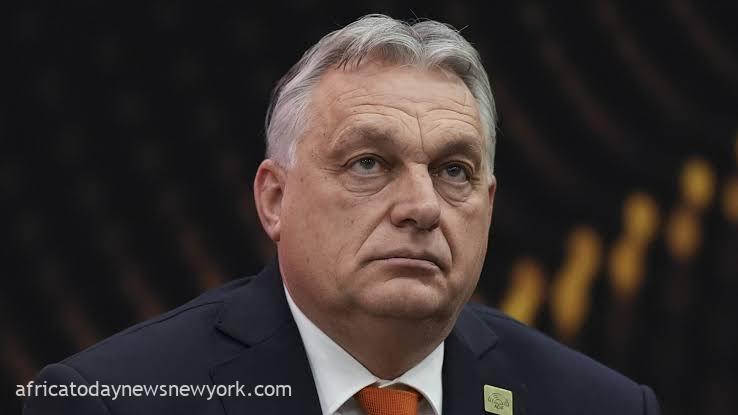Donald Trump, if re-elected as US president, is unlikely to allocate funds for Ukraine’s fight against Russia’s invasion, as stated by Hungarian Prime Minister Viktor Orban.
“He will not give a penny in the Ukraine-Russia war. That is why the war will end,” the conservative premier said after meeting Mr Trump in Florida.
The ex-US president, without elaborating, has committed to ending the war within 24 hours if elected, a stance publicly supported by Hungarian PM Viktor Orban in the 2024 presidential campaign.
“It is obvious that Ukraine cannot stand on its own feet,” Mr Orban told Hungary’s M1 TV channel late on Sunday.
“If the Americans don’t give money and weapons, along with the Europeans, then the war is over. And if the Americans don’t give money, the Europeans alone are unable to finance this war. And then the war is over.”
Orban mentioned that Trump possesses “fairly detailed plans” to resolve the Russia-Ukraine conflict but refrained from divulging further. Notably, Trump has remained silent on Orban’s televised remarks.
At their Friday meeting in Mr Trump’s Mar-a-Lago mansion, the former US president praised his guest. “There’s nobody that’s better, smarter, or a better leader than Viktor Orban. He’s fantastic,” he said.
During his time in the US, Mr. Orban opted not to engage in discussions with incumbent President Joe Biden, who is slated to be Mr. Trump’s primary adversary in the forthcoming November presidential elections.
Arranging discussions with former counterparts without engaging with current leadership is an atypical practice for visiting foreign leaders.
In diplomatic protocol, it is atypical for a visiting foreign leader to hold talks with former counterparts without also meeting with the current leadership.
Read also: Sweden Set To Join NATO As Hungary Gives Green Light
Hungarian Prime Minister Viktor Orban has been the subject of continuous and forceful disapproval from fellow EU leaders for his steadfast association with Russian President Vladimir Putin, particularly in the wake of the full-scale invasion of Ukraine on February 24, 2022.
EU leaders are growing more apprehensive about the prospect of a second Trump presidency, fearing a substantial decrease in US military and financial assistance to Ukraine, as well as to the NATO military alliance.
Despite bipartisan efforts, a $95 billion (£75 billion) foreign aid bill, which allocates $60 billion for military assistance to Ukraine, has encountered resistance from Republicans in the US Congress, leading to a standstill.
The Republicans, at the behest of Mr. Trump, have made it clear that they will oppose the bill’s progress in the House of Representatives unless additional funding for US border security is agreed upon.
Russian forces have made recent advances in eastern Ukraine while Kyiv contends with critical ammunition shortages.
Ukraine’s ability to continue its fight against Russia, a significantly larger military force with ample artillery ammunition, is heavily reliant on weapons supplied by the US, its primary provider, and other Western allies.
